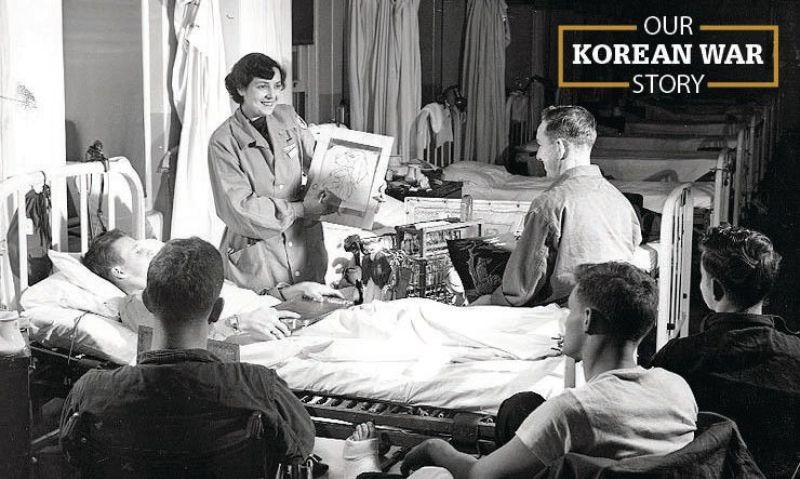
Congress acts on commander’s call to care for Korean War veterans.
On May 9, 1951, a 21-year-old combat veteran of the Korean War was denied admission into the Tucson, Ariz., VA Hospital because, as the director explained, “no returned veteran from Korea is eligible for hospital benefits unless he has been discharged from the service because of a duty disability.”
The nationally publicized story infuriated American Legion National Commander Erle Cocke, Jr., a World War II combat veteran. He joined Arizona Legionnaires who took up the young veteran’s cause and fired off two telegrams to key members of Congress the next morning, demanding action on Legion-drafted legislation that would give Korean War veterans the same access to care and benefits as those of the earlier world wars.
The VA director said his hands were tied because there had been no congressional declaration of war. The director was as perplexed as the Legion, having seen many wounded Korean War veterans come home after months of fighting. “If this isn’t war, I’d like to know what the hell it is!” he was quoted as saying.
Cocke Jr. called on VA Administrator Carl Gray to take a deeper look at the regulatory authority he had to care for sick and disabled veterans of the Korean War, declaration or not. “I have just returned from that area, and I can attest to the grueling ordeal these young youngsters are going through,” Cocke Jr. told Gray. “They are certainly conducting a fighting and shooting war.”
The bills moved swiftly to expand VA health-care services, disability benefits and pensions to veterans of the Korean War to an equal footing as World War II veterans. A joint resolution to that effect was passed and signed into law May 11, 1951.
“The Congress has finally gotten around to recognizing the ‘police action’ in Korea as a full-fledged war,” The American Legion News Service reported. “It took the full force of public opinion to rouse the Congress to action.”
A month later, with Public Law 28 on the books expanding eligibility for VA health-care services, The American Legion began pushing Congress to likewise expand GI Bill benefits to Korean War veterans.
- Honor & Remembrance

